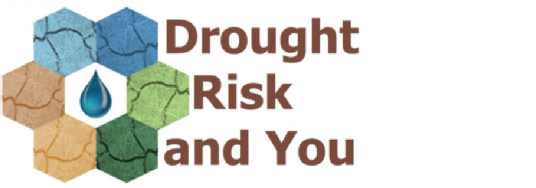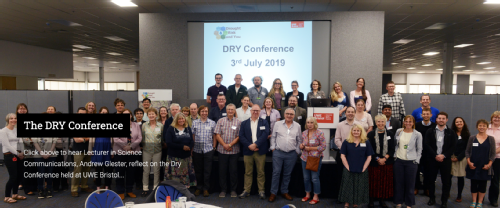Media, Memory and Water Heritage
Our research on the convergence of cultural values, media production and environmental science can be evidenced in the long standing work of Prof Joanne Garde-Hansen, who since the UK Summer Floods 2007 has been exploring the cultural values of water that influence memory, identity and sense of place, starting with the concept of Sustainable Flood Memory. Prof Garde-Hansen's research projects have been collaborations locally and internationally and have involved cultural and media producers, artists as well as environmental agencies.
A Watery Sense of Place: Coventry
In Summer 2020 - with Coventry Creates funds the Walk with Water 2 project engaged with photographer artist Jo Gane along the stretch of the River Sherbourne at Spon End, Jo Gane collaborated with Jo Garde-Hansen and Jana Fried to create calotype images of low patterns and objects/animals in the water. The new artist-led opportunity extends previous research by showcasing the hidden river to a local audience of hard to reach young people through experimental photography, digital media to reveal unseen elements of the river’s flow. In 2019-2020, Prof Garde-Hansen collaborated with Dr Jana Fried of Coventry University's Centre for Agro-ecology, Water and Resilience on the Walk with Water 1 Project as part of Coventry's City of Culture. The project was a collaboration with Talking Birds theatre of place company and engaged the public in a walking tour and workshop at Spon End and along the River Sherbourne.
A Watery Sense of Place: Sao Paulo
The Waterproofing Data Project (2019-2021) funded by the Belmont Forum developing flood resilience knowledge from science and culture in Brazil (Sao Paulo and Acre) has involved Prof Garde-Hansen's research drawing on her key role in three key UK flood memory projects in the UK.

From 2016-2018, Prof Garde-Hansen collaborated with Prof Danilo Rothberg from the State University of Sao Paulo, Brazil on the Narratives of Water project funded by Fapesp, exploring flood risk management in Sao Paulo state and the role of media organisations and other sectors in decision-making through the River Basin Committees. This led to a leading publication in the peer-reviewed journal Ambiente and Sociedade 'Improving water governance in Brazil: an organisational memory approach'.
A Dry Sense of Place: The UK?


From 2014-2018 Prof Garde-Hansen collaborated on a large UK project Drought Risk and You Project. The DRY project was founded in April 2014, with an aim to develop an easy-to-use, evidence-based resource to inform decision-making for drought risk management in the UK over a four year period. The project spans seven catchment areas in England, Wales and Scotland to reflect different hydrological, socio-economic and cultural contexts in the UK. It takes a unique approach because it draws together information from multiple perspectives on drought science, stakeholder engagement, citizen science and narrative storytelling to better understand drought risks, while other studies have focused on mathematical modelling of drought risk. A key part of this is using different types of data together to build a better picture of drought risk in the UK. In this project, ‘data’ can mean statistics derived from a hydrological model to stories, media and images collected from a river catchment area.
From 2014-2015, Prof Garde-Hansen collaborated with Prof Rob Procter (Computer Science) and Dr Arkaitz Zubiaga (Computer Science) to develop a Flood Memory App, with the input from the Environment Agency and community stakeholders in Gloucestershire as beta testers. The app was used in teaching projects with the Environment Agency and on the MA Global Media and Communication, and became the useful knowledge for the app development in Brazil. From 2013-2014, the ESRC Knowledge Exchange Opportunity found Garde-Hansen working with McEwen (UWE) and Jones (Bath Spa), alongside the Environment Agency, on a project entitled Sustainable Flood Memory - trialling digital storytelling as a form of adaptive learning and knowledge exchange for resilience in at risk communities. This knowledge exchange was built upon the research during 2010-2013, where Prof Garde-Hansen was co-investigator of the ESRC funded Sustainable flood memories and the development of community resilience to future flood risk. The project explored the nature of flood memory and its relationship to the development of local knowledge for increased community resilience to local flood risk. Garde-Hansen's focus was upon the use of media for recording flood events and remembering those events through digital and social creativity and networks. The project worked with communities and organisations in the lower Severn valley in the aftermath of the July 2007 floods.
